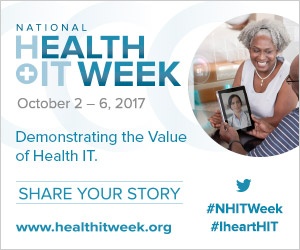National Health IT Week is this week, running October 2nd to October 6th, spreading advocacy for the role that health IT can play in transforming healthcare and improving patient outcomes. This is an important topic, as many hospitals are still struggling with a mix of innovative solutions and legacy technologies that are impacting patient care in both positive - and negative - ways.
Let us tell you the story of Telmediq.
Back in 2012, Telmediq founder and CEO Ben Moore was expecting his first child, a baby girl. Ben's wife went into labour and went to the hospital here in Victoria, BC. Victoria General Hospital is an award-winning hospital, with doctors and nurses that are well-respected and dedicated to their jobs. And yet, during an emergency situation during labour, Ben wittnessed a communication break down. Pagers were sent and not returned. There were delays. Everyone was frustrated - Ben included. Ben thought there had to be a better way to coordinate care, particularly during emergency situations.
Ben's personal situation sparked his curiosity, followed by conversations among the care team working with his family and later with physicians and hospitals around North America. Telmediq launched its first solution, SmartPager, to support transitions away from pagers to more comprehensive and secure messaging solutions back in 2015. Since then, with the collaboration and input of leading physicians and hospitals, we have evolved to offer one of the most comprehensive healthcare communication platforms on the market, offering over 40+ integrations with clinical systems and including patented technologies such as our NFC Tap.
An idea was borne out of this first hand knowledge of the impact that technology can have on healthcare. It’s not always positive, but it has that potential. Today, hospitals around North America continue to struggle with communication. Despite widespread adoption of EMR and EHRs, the average hospital still has 10-12 different communication systems in place, some of them 10 or 20 years old, and the average doctor is spending over 49% of their time on EHR and desk work, according to an AMA study. There are some technologies that are having a negative impact on healthcare costs and patient outcomes. And yet, we truly believe technology also holds the potential to move forward.
We’re proud of what we’ve built with the Telmediq Healthcare Communications Hub (HCH) and are proud to be participating in the 2017 National Health IT Week.


